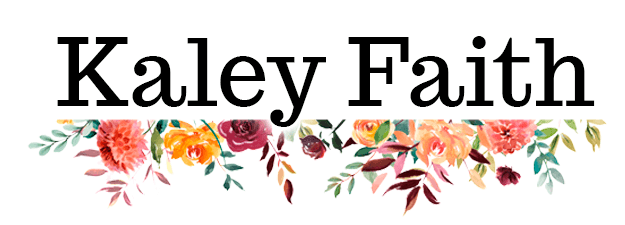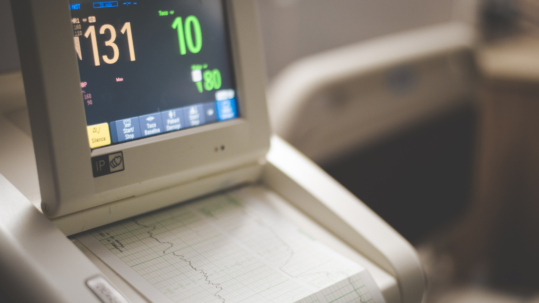
11 Nov Things To Do While Waiting For Medical Answers
Waiting sucks. Especially when it comes to waiting for medical answers that could very dramatically impact your life, your perspective, and everything about the future.
While waiting for a full evaluation at Mayo Clinic for the constellation of symptoms I was experiencing, I often found my mind repeating “I am not ok. Something is wrong. I am not ok. Something is wrong.” looped over, and over, and over. And while I knew it wasn’t helpful, I didn’t know whether or not it was true, and had a very hard time letting it go. As a Christian, I know that the Bible tells me not to worry, be anxious, or afraid, and yet those things seem to be the default settings when big medical things are happening. Intellectually I knew that I was called to trust in God and His plans for my life, but getting that message to take root in my emotions has honestly been a challenge. I’m learning that faith isn’t some switch that I can choose to flick on or off, and despite my very best efforts, sometimes I don’t do a very good job of holding on to peace.
Forty-six days before my scheduled trip to Mayo Clinic I hit a wall, and was 100% convinced I simply could not make it. I was done. Hopeless. Distraught. In crisis. Medical help was simply too far away. I tried a lot of things, like numbing out on social media or binging medical shows, but that inevitably made things worse. I needed something visible and tangible to help me hold on to hope and trust God in the waiting. Over time, I discovered things that DO help, and not only make the wait easier but also help me put into practice my trust in God. So the following tips are from a real human, who has a real hard time waiting for medical answers and who deals with health anxiety in the meantime. Maybe you are right here with me, in a season of pain, wondering how you’re going to make it to your next appointment (or the next treatment, or the next round of testing). If that’s you, I’m so sorry that you are struggling, and I invite you to consider trying a few things that I have found to be helpful.
Make a paper chain 
When we were kids and couldn’t wait until Christmas or our birthday, we used to make paper chains. We would the cut paper into strips, and then staple them into loops around each other to make a long chain. The number of loops was the number of days until the event, and every morning we got to wake up and rip off a loop, signfying one day closer to the day we couldn’t wait for.
Quite honestly, this was one way of coping that was crucial for me. I counted the days. 43 days until Mayo. 38. 25. 11. 7. Each day was one day closer, and I loved being able to tell others the exact number of days until we headed off for our week of testing. In some small way, it gave me a sense of control, and helped me keep a cohesive mental timeline, reassuring me that the day WAS coming. If you don’t feel like you can wait another second – make a paper chain.
Talk with a friend who has been through similar circumstances
Struggling in one area of life oftentimes gives us compassion for others going through similar things. We can encourage them in specific ways, we pray with new understanding, and we support each other more robustly. Suffering brings people together.
So when I had come to the end of my ability to cope with the wait, I reached out to a family friend who I knew had experience in this miserable medical waiting. Talking with her was exactly what I needed, and while it didn’t change the circumstances, it changed my ability to handle them. She listened deeply, offered meaningful encouragement, and reminded me of the firm truths of scripture that I had let turn to mush in my heart. It was a turning point for me because I realized just how fragile I am, and why I can’t afford to lose sight of the God that sustains me, or the people I am surrounded by. A text that reads “I’m really struggling. How did you do it?” or a coffee date to share about the struggle could make all the difference.
{It’s also worth noting that while talking with friends is excellent, seeking a professional counselor is a completely valid option in the midst of health challenges (and one that has been absolutely necessary for myself). I have found a significant amount of grief throughout my health journey, which can often express itself in the different stages, such as anger, denial, bargaining, depression, and acceptance (and then back again). Having a professional equipped to help me navigate this has been important.}
Journal about your concerns
When I was a teenager it seems I was constantly running out of pages…and ink. I loved to journal, and it was my main stress outlet when things felt overwhelming. But with the demands of life and in the midst of navigating health crises, I have often felt like I simply don’t have the time or energy to slow down enough to put pen to paper. Especially when brain fog is thick, my limbs feel heavy, and it all feels so futile.
But there’s a reason journaling is so popular when it comes to healthy habits and self care. And one of the most helpful tidbits of encouragement I was given in a rough season was to simply write SOMETHING. To let it be short, choppy, ugly, yucky, and gross. That if I can’t write sentences, just write words. To not filter it for anyone but myself and God, being real in the pain, and being ok with the fact that sometimes life SUCKS with no apparent silver lining.
Writing twelve half-baked paragraphs with no punctuation, or writing a stream of 42 questions all together is where change begins. And then the next day you do the same. And the day after that. And then one day you sit down to journal, and you suddenly realize that without thinking, you began to write about things you’re excited about too. You find yourself taking a paragraph or three to thank God for the way he has sustained you or the ‘coincidences’ that were a huge blessing. Or maybe you find that in some strange way, you feel like you’re finally scraping the bottom of the anxiety bucket, and you set down a particular worry, knowing you’ve done all you can do. And while you may still hold the tension of hope and despair, there’s a level of peace knowing that whatever it is has been addressed in writing, that the Living God has seen it, and that tomorrow will come and you’ll be one day closer to resolution.
Listen to songs of suffering and lament
There is a time for seeking to be cheered up, but there’s also a time for allowing ourselves to feel the feelings that need to be felt. Whether it’s anger about the circumstances, sadness over what we’ve lost, despair after disappointing news, or frustration at logistics, songs can help us recognize and process these emotions.
I listen to You Already Know by JJ Heller on a daily basis (or 3…or 5 times). It is my absolute go-to for health uncertainty and the big feelings that go with.
Tears on Your Face and Feast of Your Faithfulness by Bethany Barnard are also powerful songs. She has two albums of lament that came from seasons of loss and mental health crisis, and I listen to many of them on a regular basis.
The Kingdom is Yours is a gorgeous song of grief and hope.
The Detour by FAITHFUL is another favorite.
But even if the above songs are not your style, music has a way of encouraging our hearts, so put together you own playlist. Whether it’s lament, or something more upbeat, have something to engage your mind while doing chores, driving, showering, or laying on the floor feeling miserable.
Take sleeping aids if you need
My health anxiety seems to kick it into high gear at night. The silence makes room for thinking, which inevitably leads to unanswered questions. I then find myself on a Google rabbit trail, and before I know it, an hour has passed and I’m wide awake with even more questions. And even if I manage to avoid the researching pitfall, my dreams tend to distill my biggest fears, causing me to wake up disoriented and exhausted.
I began taking 1g of melatonin upon the recommendation from my counselor, and he also suggested taking L-theanine along with it (an amino acid found in green tea to calm the mind). It works wonderfully for me, taken an hour before bed. Whether you want to try a similar combination, or have something else you go to when you struggle to sleep, consider this a reminder that good sleep is important, and worth protecting if health anxiety keeps you up.
Pray for other people in your life
In the midst of crises, I can find it difficult to pray for myself. Sometimes it’s because there are simply too many things fighting for my attention, but other times its because I don’t quite know what to ask for or how to ask for it, and unfortunately resort to not trying at all. One way that I have learned to bust out of my self-centered spiritual pity party (and I mean that in the most honest of ways), is to begin praying for others. The first person to pop into my head is often the last friend I was texting with. I picture what they are going through – the highs and lows of their unique life, and I pray for them in their circumstances. Then maybe I pray for the person I have a meeting with tomorrow, the person I had a conversation with in the waiting room, or the friend of a friend who I heard was struggling.
It gets my mind on a fresh topic, helps me remain sensitive to other’s burdens in the midst of my own, and ultimately is a way that I can draw nearer to God in the midst of a tough spiritual season.
Summary
I was recently asked how I manage to always stay positive through the medical stuff I’m going through. And my honest answer was “I don’t.” The reality is, I spend time *daily* journaling about my feelings of anxiousness and hopelessness, listening to songs of lament, and engaging in specific conversations with others who are supporting me in this season. But giving myself space to honestly process the grief and fear of my present reality allows me the space to ALSO celebrate the good, and invite others into the journey.
Suffering, especially medical suffering, has a way of refining us. It burns up our pride, our independence, and the idols we have clung to for comfort. And maybe you don’t want to hear about the silver linings, but please don’t miss the fact that right now, we need God more than ever before, and that is precious. You may not be able to pray anything more than “Lord. Please help me.” You may not feel able to open your Bible, or attend church, and honestly, you may feel frustrated and hurt. But when the new season comes, there is a very real possibility that you will look back and see that even though all you heard at the time was silence, that it was God who quietly and faithfully sat with you, lending you His strength and directing your path.
As James 1:12 says, “Blessed is the man who remains steadfast under trial, for when he has stood the test he will receive the crown of life, which God has promised to those who love him.”
I know this season of waiting sucks. I know living in a broken world sucks.
-
Making a Full Physical Recovery – A Day-by-Day Miracle
“You should exercise more.” A brutal statement. One I had tried to fulfill on my own, and time and time again, had failed. It was a frustrating piece of advice from my doctor, and felt so out of reach as I navigated my bouquet of chronic illnesses....
27 June, 2024 No comment -
Awesome Recovery News!! And Why I No Longer Plan To Write About My Symptoms
I am so excited to report that after graduating from the 3-week Pain/Symptom Rehabilitation Center at Mayo Clinic in Rochester and continuing the program at home, I am nearly 100% recovered!...
05 March, 2024 3 Comments -
What is the Valsalva Maneuver like?
The Valsalva maneuver is EASILY the most fascinating thing I’ve gotten to do in this entire medical adventure. On the surface, it’s a fairly quick and easy part of autonomic testing, but underneath, it’s one of the coolest and most complicated mechanisms of the human body that I’ve encountered. ...
17 January, 2024 3 Comments







Pingback:Mayo Clinic for POTS - An Overview of My Experience - Kaley Faith
Posted at 22:28h, 23 November[…] that the day has FINALLY come! It was a very exciting moment – one I had been anxiously awaiting for a long and hard […]